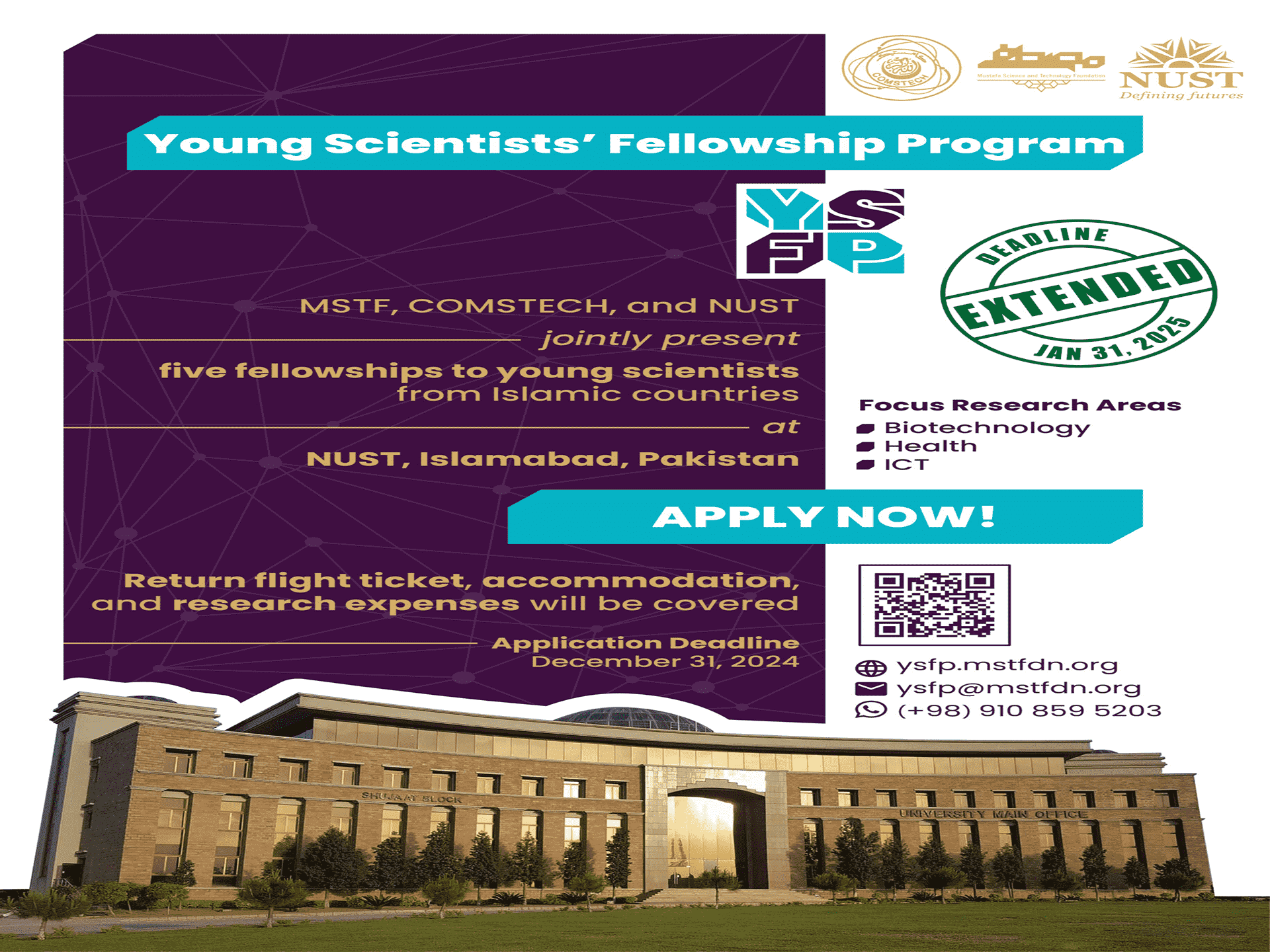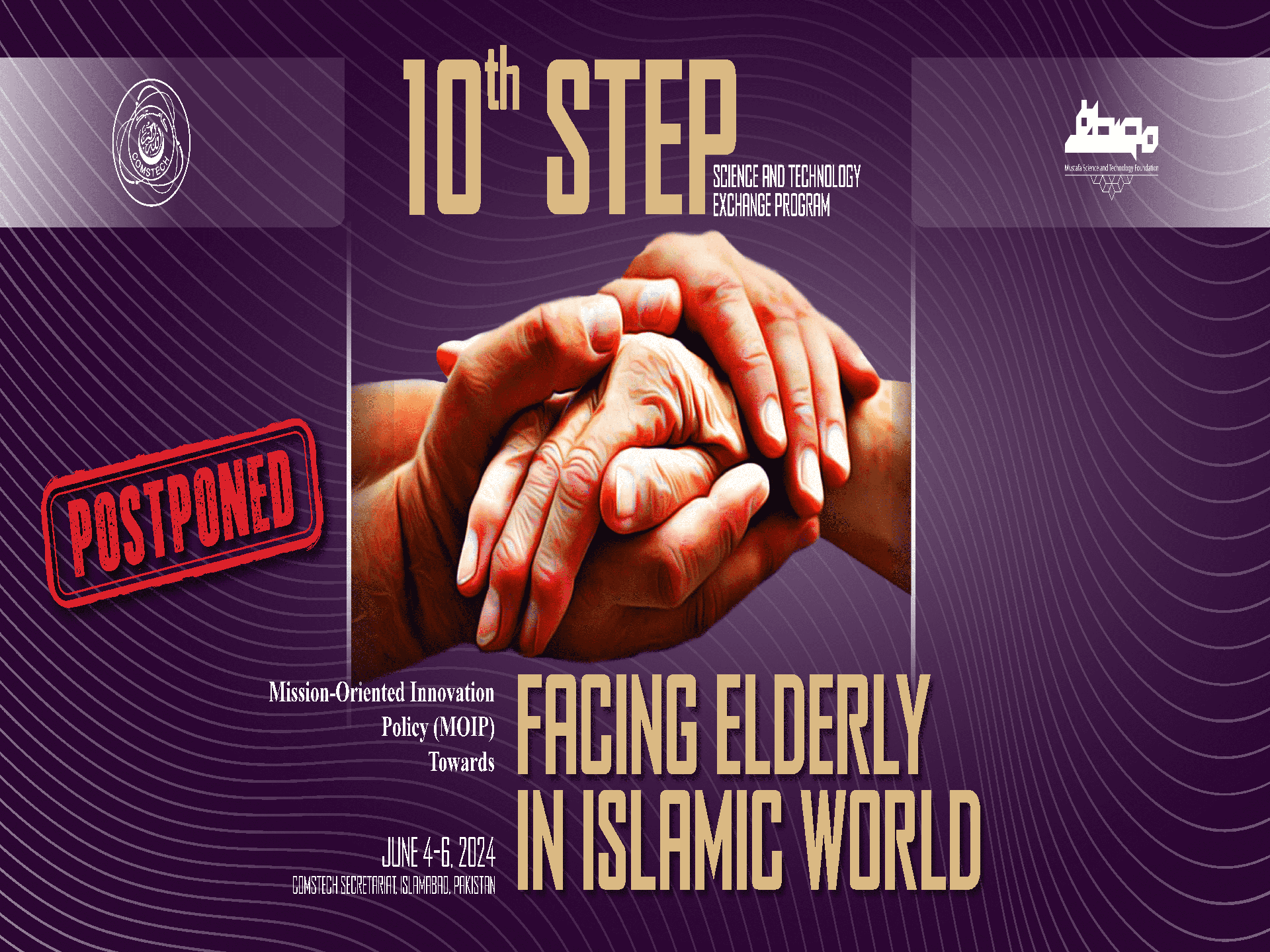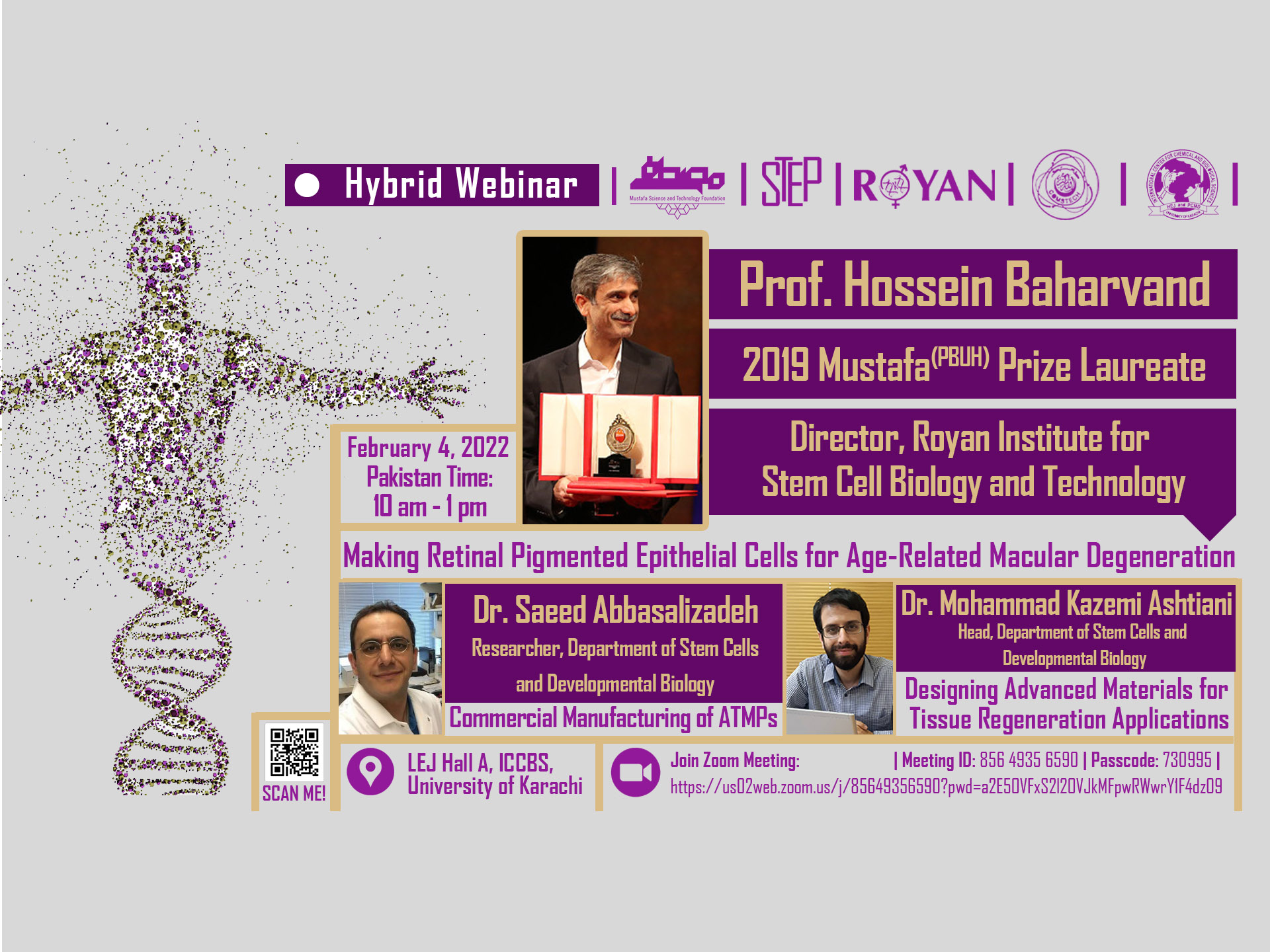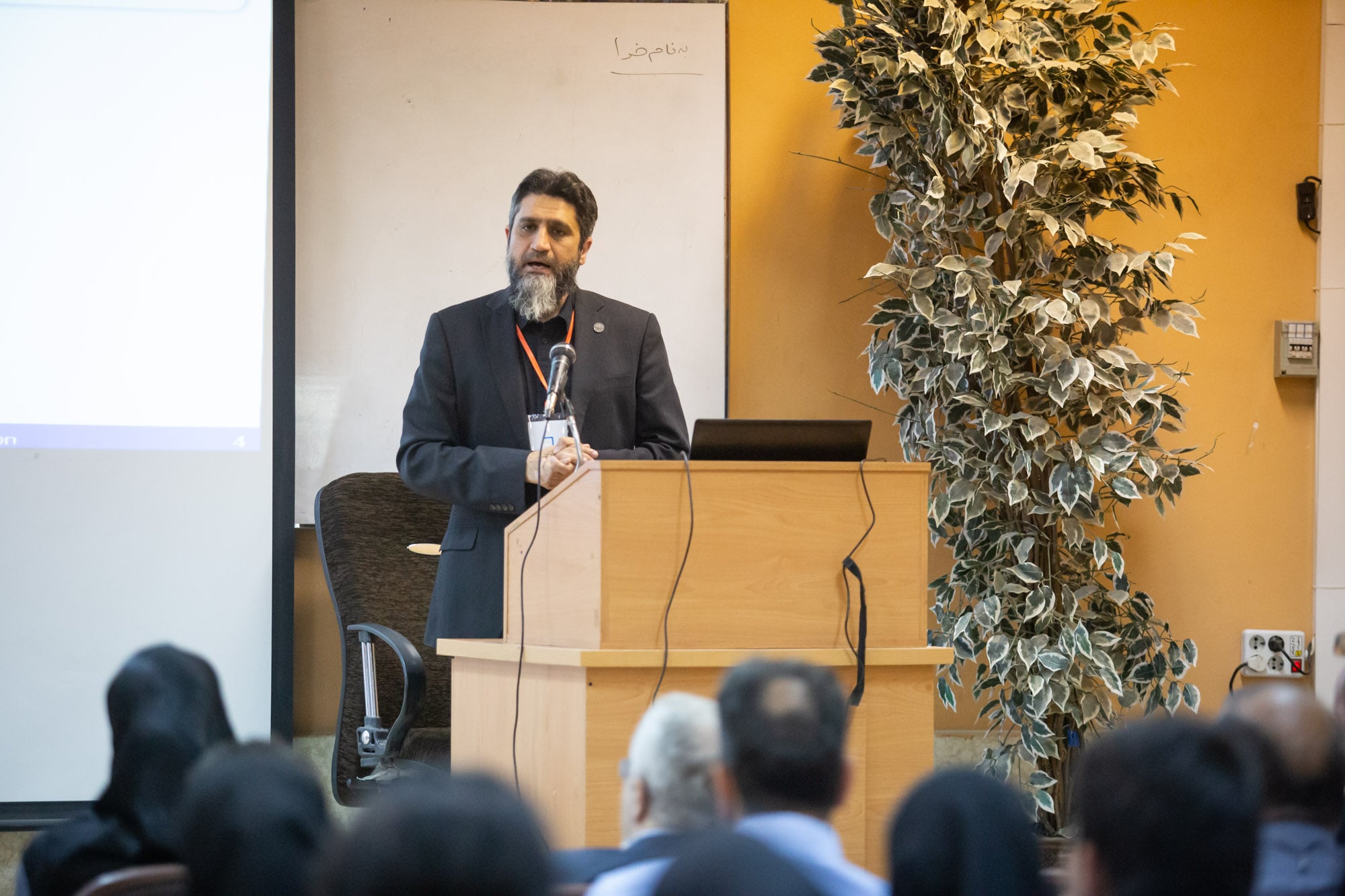7th STEP
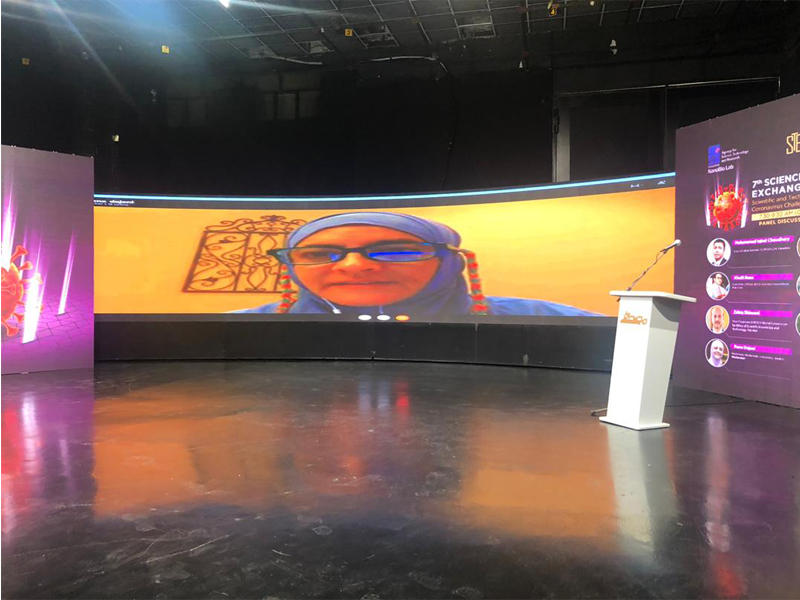
Networking in the time of COVID-19: 'It is not about competition but collaboration'
28 May. 2020
Rana Dajani moderated the panel composed of Khalil Raza, Zabta Shinwari, Abdul Latif Khan, Max Paoli, Muhammad Iqbal Choudhary, and Amirhosein Takian.
Kahlil Raza, Scientific Officer of ECO Science Foundation, talked about "COVID-19: Call for Effective and Reinforced Scientific Collaboration."
Raza stated that "the COVID-19 pandemic is a wake-up call for better cooperation at the science-policy-society interface."
According to him, the "five lessons for science, policy, and society are that we should strengthen our national capacities for science-based decision making across all countries, enhance public trust in science, share knowledge and data to promote collaborative research, ensure universal access to solutions, and act with greater urgency on global scientific assessments."
Raza further spoke of some of the measures which must be taken in the battle against Coronavirus. These include "increasing the budget allocation for the health sector and providing immediate support for the long-term strengthening of the health sector; investing more resources on Science, Technology, and Innovation, particularly health and science education; developing capacities and capabilities of the scientific communities; and developing collaborative platforms amongst the universities and laboratories of the member countries."
Next, Abdul Latif Khan, professor at University of Nizwa, talked about the genome structure of SARS-CoV-2 and nucleotide diversity among SARS-CoV-2 viruses shared by different countries.
He elaborated on the comparison of nucleotide diversity and genome size among SARS-CoV-2 viruses, concluding that "the highest nucleotide diversity was found in samples collected from China, followed by England, Iceland, and USA."
Latif Khan stated that such an analysis will "help epidemiologists to understand further the viral infection process and variation across different locations." Also, more genomic datasets can help to detect diversity and mutation across different samples.
The next presenter, Max Paoli, Program coordinator of The World Academy of Sciences (TWAS), talked about The IsDB-TWAS programme of collaboration, the focus of which is sustainability sciences.
According to Paoli, IsDB-TWAS initiatives represent "a joint commitment to advance scientific research in IsDB member countries, especially the least developed member countries," through "postdoctoral Fellowships in Sustainability Sciences, research grant in Sustainability Sciences, Science and Diplomacy Workshops, refugee and displaced scientists."
He further elaborated on IsDB-TWAS Joint Research and Technology Transfer Grant 2020: Quick-Response Research on COVID-19.
Paoli announced that "TWAS and IsDB have partnered to promote and support quick-response research on key challenges related to the COVID-19 pandemic and the possible consequences."
The grant enables two collaborating groups to purchase the research equipment, strengthen the facilities they need to enhance their partnership and productivity, and to support the mobility of scientists between participating institutions for training purposes.
"There will be 50,000 USD granted to each research group, 100,000 USD in total," Paoli added.
Amirhosein Takian, Associate Professor at Tehran University of Medical Sciences, talked about "COVID-19 Cohabitation: an opportunity for Greater Global Academic Partnership."
He believed "the most important development in the 21st century is surveillance and the ability to hack people." This surveillance system is used to monitor people, especially to track down the movements of people in the current COVID-19 pandemic.
Replying to Rana Dajani's question about methods to maintain a balance between protecting people with surveillance and respecting their freedom, Takian said "we need to create norms, standards, and partnerships– not competition. Instead of going to the police we need to have international NGO agencies. Instead of having government-dependent authorities, we need non-governmental ones to collect such data, which will not be handed to the government."
Another speaker at the panel, Muhammad Iqbal Choudhary talked about the discovery of drugs that can attack Coronavirus and offer a cure, the expansion of testing facilities, the structure of Coronavirus strain found in Pakistan, and the development of ventilators for COVID-19 and other patients in Pakistan.
"Pakistan randomized an observational trial for the evaluation of COVID-19 treatment. Pakistan is the first country ready to treat COVID-19 patients with an ethically approved, internationally registered medical treatment protocol ahead of the peak," he observed.
According to Choudhary, "hundred patients have already been treated with the PROTECT protocol."
"PROTECT network will set up Pakistan to be at the forefront of multicenter health research for drug development in post COVID-19."
For Choudhary, the future will bring "further clinical trials with herbal agents, development of indigenous testing kits including serological kits, exploration of vaccine trials, and utilization of AI/IT technology for effective tracing and tracking in COVID-19 response with multidisciplinary stakeholders."
Lastly, Zabta Shinwari discussed the four critical areas on which OIC countries must focus. These include "initializing clinical trials on Coronavirus patients using existing drugs, i.e. azithromycin and oseltamivir; exploring the possibility of using certain herbal drugs; magnifying the testing facilities in OIC; building capacity to understand philosophy of existing drugs such as hydroxychloroquine; and exploring the possibility of indigenous manufacture of ventilators, RT-PCR machines, and other engineering-based equipment."
In order to prevent occurrence of the next pandemic, "instead of waiting for the next deadly microbe to spill over into humans, public health experts and policy-makers must confront the drivers of zoonotic diseases," Shinwari maintained.
Further, touching upon the issue of gender gap in science, Dajani asked Paoli about the measures taken to encourage more female participation in the TWAS programme.
Referring to gender balance as a major issue, Paoli stated that "many organizations are working hard to improve it. For post-doctoral fellowships which involve mobility, women's mobility is hindered because of family. We improve this by extra funding to allow better childcare and other types of mechanisms to increase the likelihood of women scientists' confidence to carry out research."
Dajani brought the panel discussion to an end by providing a message regarding the importance of networking among Islamic countries in these tough times.
"Cooperation between science and politics is crucial. We are in this together. General public will suffer if we don’t collaborate. We should identify our strengths and weaknesses to go forward. We ought to communicate science to the public in terms of ethics and values, and inform them in terms of education. It is not about competition but collaboration," she said.
News Source: MSTF Media


